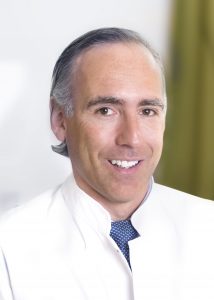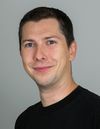In this session, we will have two sessions, given by the following domain experts:
Prof. Dr. med. Gero Strauss from the ACQUA Klinik Leipzig and KOPFZENTRUM Gruppe, who will discuss the topic of “Automation in medical and surgical services”.

Dr. David Bednar is a Junior Team Leader at the Loschmidt Laboratories at the Faculty of Science at the Masaryk University in Brno. Loschmidt Laboratories are conducting interdisciplinary research in protein engineering. Within this session, David will present details about the usage of the computational tools in their daily workflow.

Abstract: Proteins are macromolecules which provide a vast variety of functions in the living organisms. They serve as the building material of the cells and participate in regulation, signaling, immune response, and enzymatic catalysis. Natural protein variants often do not possess properties necessary in both basic science and in technological applications, and therefore, modification of protein structure through the methods of protein engineering is very important. Molecular simulations and in silico predictions on protein 3D structure can reduce the costs and time demands of laboratory experiments by helping to identify important proteins regions, modify their structure, and compare properties of the newly designed mutants with natural variants. This talk will focus on several protein engineering projects from the point of view of computational chemistry and bioinformatics. Methods like molecular dynamics simulation, quantum chemistry calculation, molecular docking, or analysis of protein transport pathways will bring some insight into the problem of improvement of protein stability and modification of enzymatic activity or selectivity. It will be shown that computational and visualization tools play a major role in protein engineering projects.
